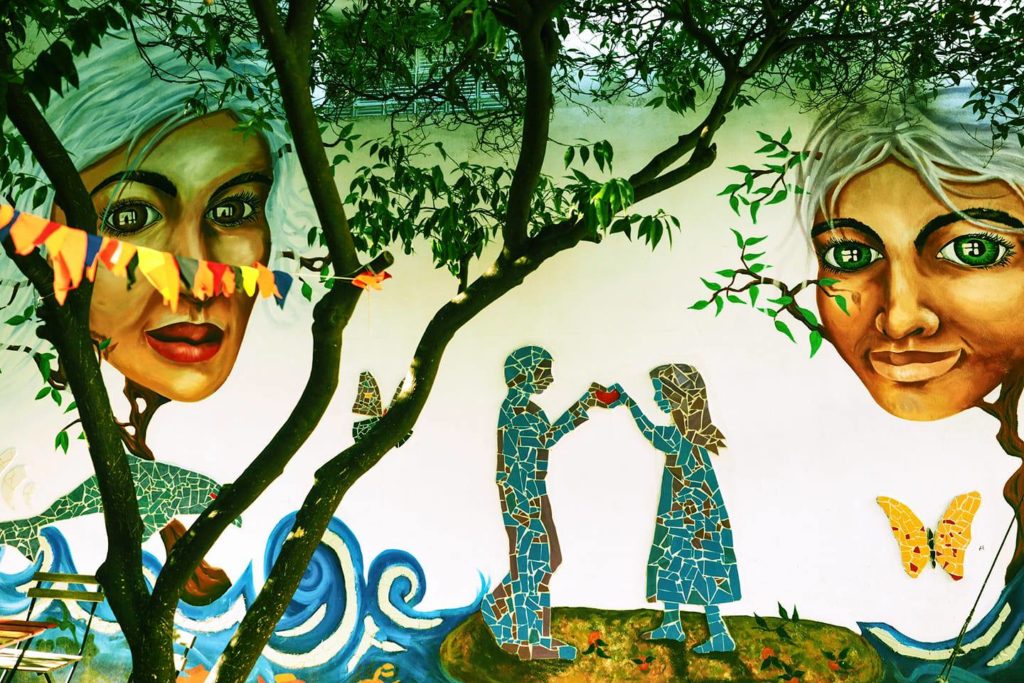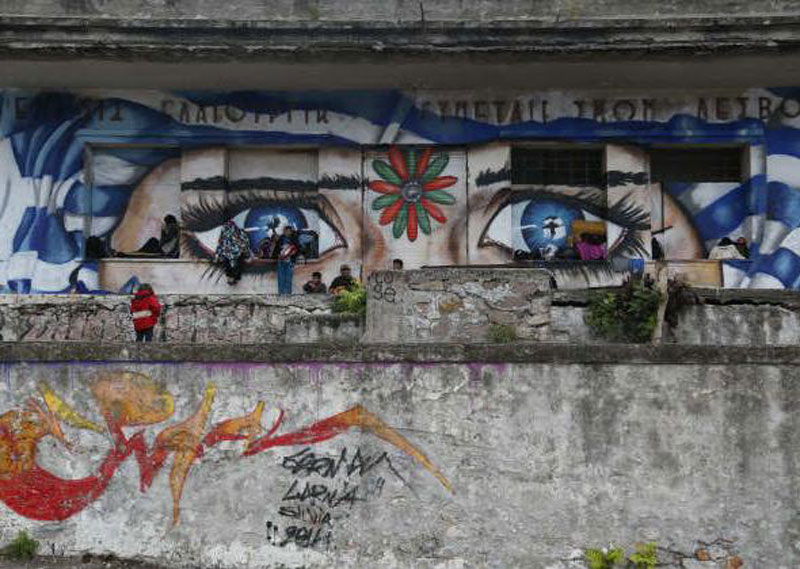I came to Lesvos in 2016, one year after the beginning of the so-called “refugee crisis”. Until then, I could not even point Lesvos on a map. Until I was 17-18 years old, I actually thought that this island was Chios. I knew its shape and location, but thought it was Chios’. I did not know anything about Lesvos. At the time, I was completely politically-unaware and I only heard about the “crisis” at Lesvos once I received my exams results and I found out about my university placement in Mytilene. Truth be told, I was so blissfully ignorant about the “refugee crisis” on our islands that, when I arrived at Lesvos in 2016 and I saw sleeping bags for sale everywhere, I told my mom “Oh look! This is a very good idea. It’s for tourists to buy sleeping bags when they forget to bring their own.” Little did I know that a mere few months before my arrival, the port and the town square were filled with refugees sleeping in tents and sleeping bags.
I found out about Lesvos’ strong media presence and the amount of its media coverage once I had already moved here. When I told people I was coming to study in Mytilene, all but a few reacted the same.
Especially from 2016 to 2019, virtually everyone (especially over 40) had the same reaction. I would say “Mytilene”, they would hear “refugee crisis” and would give me that sympathetic facial expression which you knew meant “good luck with that. Good luck with them.” Most questions I received revolved around “these people” and how the city was “full of them” and whether they were bothering me. Only a few people, around my age, referred to the situation in different terms.
The first years, their worry and “sorrys” made me uncomfortable. People were feeling sorry that I was somehow getting myself into what they imagined to be a disturbing and dangerous situation. As the years went by, and as I started better understanding what was really happening on the island, I got annoyed realizing how people were more sympathetic to me than they were to refugees. People now tell me “Luckily there are fewer now, right?”. I cannot even answer questions formulated like this. They imply such a radically different theoretical basis to mine that, most times, I would just mumble a short answer and quickly change subject.
They ask questions as if they are seeking the “truth” from me. They make it seem like they want my first-hand experience of the life in Lesvos but, undoubtedly, they just want me to confirm the narrative they already believe to be true. This became crystal clear on the rare occasions that I had the strength to engage in the conversation to try and debunk their biased beliefs.
It is obvious that most of them had no idea what is really happening. After six years on the island, and six years of media coverage, I still hear outrageous rumors about the “refuge crisis” that I have never experienced here. Conversely, there are still so many facts that I share with people which they have never heard before. They often do not believe me when I share the kind of first-hand knowledge that they were looking, simply because it has not come up in the news that they choose to follow.

The only picture I recognise is the one depicting people working together on a mosaic wall at the “Mosaic Support Center”. I really like this artwork and it’s interesting to see a picture from when it was being created.

Another important artwork for me is a graffiti in the port of Mytilene with two eyes framed by a Greek flag. I had not really noticed the details of it, but it acquireda special meaning to me when I sent a photo of it to a friend of mine who is also a refugee, as I was leaving the island by boat. He told me that being trapped on the island, he wishes to someday see these eyes from a ship. In fact, lots of his friends who have managed to leave the island had taken a similar photo.
The graffiti shows two eyes and a Greek flag which, to me, resembles a hijab and the flower drawn between the eyes remind me of a Bindi (the colored dot that Hindi women often paint on their forehead).
Gefsi
Hi,
Such an honest and interesting text you have written! Do you think that the experience with the sleeping bags made you more aware of the situation on Lesvos?
I myself would be the one with the worries and with the “sympathetic facial expression” you speak of. I would be one of them even though I am an immigrant and my father was a refugee. It’s strange how situations affect my emotions and attention when it’s far away in time and place.
Thank you for this thoughtful reflection, Gefsi! I hope it will spur different conversations. One thing that comes to mind when talking about Lesvos as ‘site’ or ‘place’, is Miwon Kwon’s ‘One place after another’ (on site-specific art) where she distinguishes between phenomenological, social / institutional and discursive place (a bit from my memory). What you experience seems to be Lesvos as ‘discursive’ place; the media representations, discourses, political symbols etc. I’m curious how it is possible to change such a ‘place’, since it is very much anchored in imagination and discourse, not necessarily (but potentially) in real-life experiences. Perhaps the best way to engage with this could be to work through the different layers of place, somehow, and let some other experiences reach the discursive level? Or is it better to work with the social and institutional as well as phenomenological place?